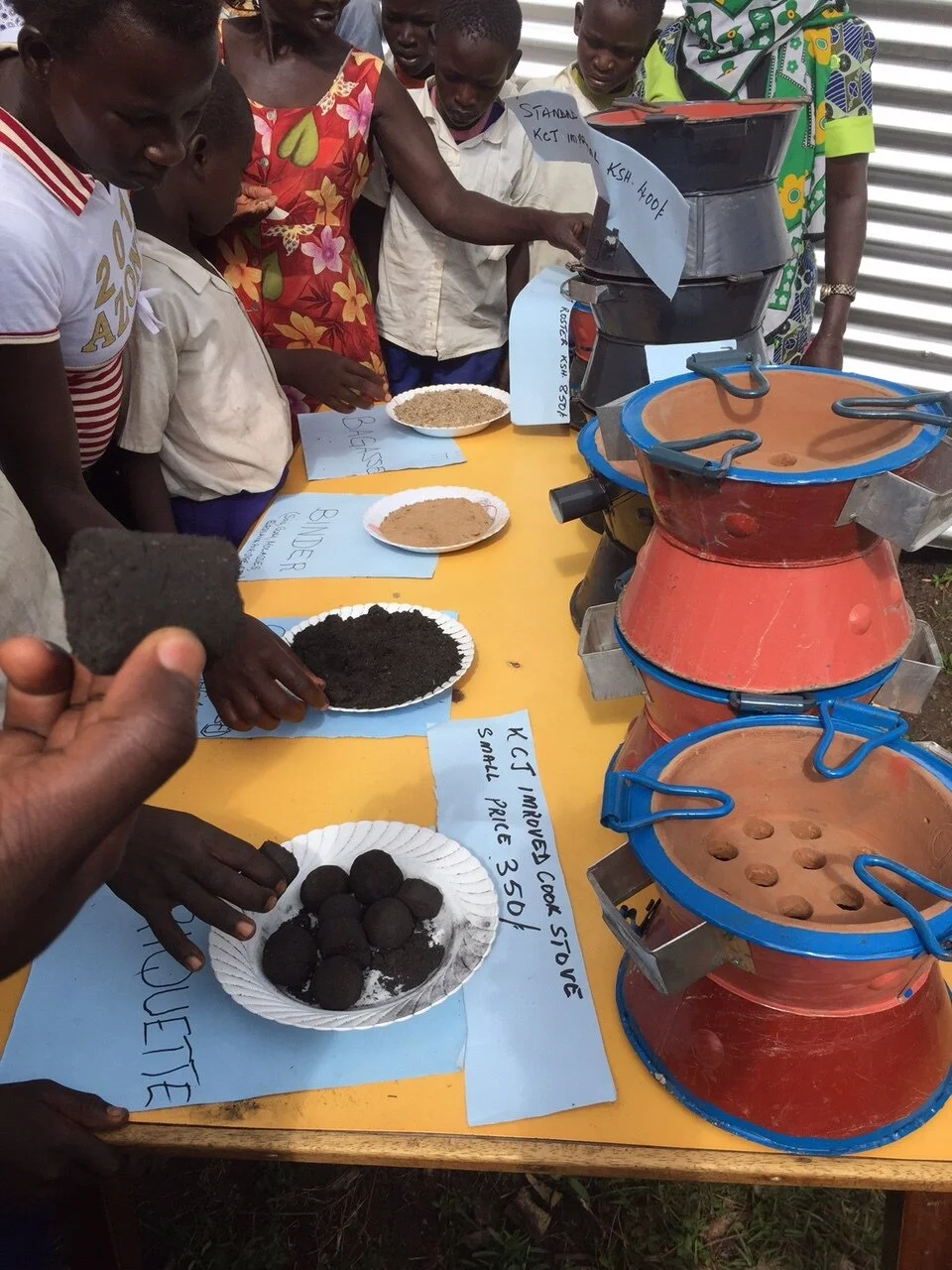Waste being used to create energy and jobs in Kenya
Huge mountains of bagasse, the waste from sugar production
The residue from sugar production that used to add to environmentally harmful methane emissions, will now be turned into environment-friendly energy and jobs. Through the project Biofuel4Kenya, local enterprises will be established to make biomass briquettes from the waste.
Each year, Kenya's sugar production generates roughly 2.4 million metric tonnes of bagasse, a pulpy fibrous residue left after the juice has been extracted from sugar cane. While a large part of the bagasse is used to heat the factories, nearly a million metric tonnes of bagasse are dumped or burned. This environmental problem leads to formidable emissions of greenhouse gases.
In collaboration with NIBIO (Norwegian Institute of Bioeconomy Research), Norges Vel will help facilitate economic development based on bagasse in connection with the Biofuel4Kenya project. Local enterprises and jobs are being created to transform the waste from sugar production into environment-friendly fuel briquettes that can replace charcoal and can help reduce deforestation.
Developing commercial value chains in the field of renewable energy
Biofuel4Kenya will pave the way for enterprises and private players to establish and develop commercial value chains in the field of renewable energy.
The project is based on an earlier initiative from Norges Vel that was funded by the Nordic Climate Facility. Based on the earlier project, more efficient combustion systems and machines will be developed for making high-quality fuel briquettes from carbonised bagasse.
Strengthening local cooperatives
Development of the production lines has been assigned to three cooperatives that will receive instruction in production, organisation, sales and financial management. Instruction in setting up businesses and developing business plans is part of the project, which is intended to help entrepreneurs develop their business ideas, especially in the field of renewable energy.
The cooperatives should be able to manage on their own by the end of the project period. In addition, the development of technology, production methods, financial models and business models should set the stage for several similar initiatives and investments. Local entrepreneurs will also receive advice, courses and supervision in areas in which they need help to gain traction for their businesses or to be in a position to start their own businesses. Getting access to capital is also challenging for many entrepreneurs, so the project will also establish a model for collaborating with a local financial institution.
Reduce deforestation and health hazards among women and children
The production of biomass briquettes will help reduce emissions of harmful greenhouse gases from the bagasse tips, creating new jobs. In addition, the briquettes will help reduce the deforestation in the country by offering good alternatives to charcoal as fuel.
Deforestation is a huge problem in Kenya because large parts of the population use firewood and brush for heating and cooking. With the new briquettes, women and children who spend a lot of time indoors, where food is made, will be exposed to less hazardous smoke.
Greater availability of biomass briquettes can replace charcoal and hard coal, which may in turn help resolve some of Kenya's energy, economic and environmental problems.
Norges Vel's contribution and role
The project's management team along with NIBIO and KEFRI
Organisational development and capacity development
Business plan, value chains, analyses of the competition
Promote equality and women's participation
Protects human rights, good working conditions and risk management for the smallholders
Systems for data acquisition and registration
Results
Biofuel4Kenya is intended to establish a financially sustainable value chain in the field of bioenergy to contribute to economic growth, fight poverty and lower carbon emissions.
The project is intended to: Provide private players with access to improved technology for the commercial production of briquettes based on biowaste
Improve the partner cooperatives' technical knowledge and organisational capacity
Establish local bioenergy enterprises that are sustainable, can be replicated and are of interest to investors
Develop business models and financial mechanisms for commercial concepts based on bioenergy, so that they can be scaled up and copied by private players in new markets
The sustainability goals in the project
In the autumn of 2015, UN member states adopted 17 goals for sustainable development by 2030. All of Norges Vels' projects support the sustainability goals.
This project contributes to:





